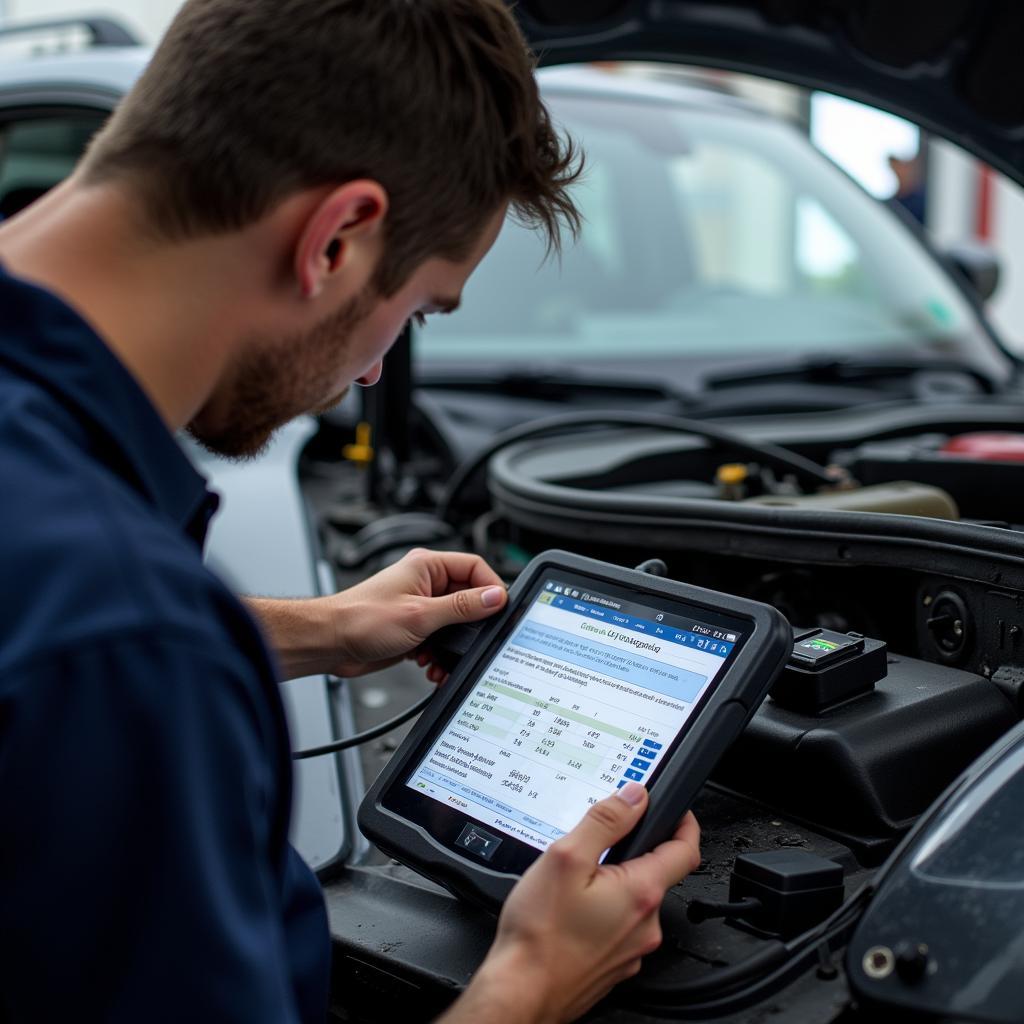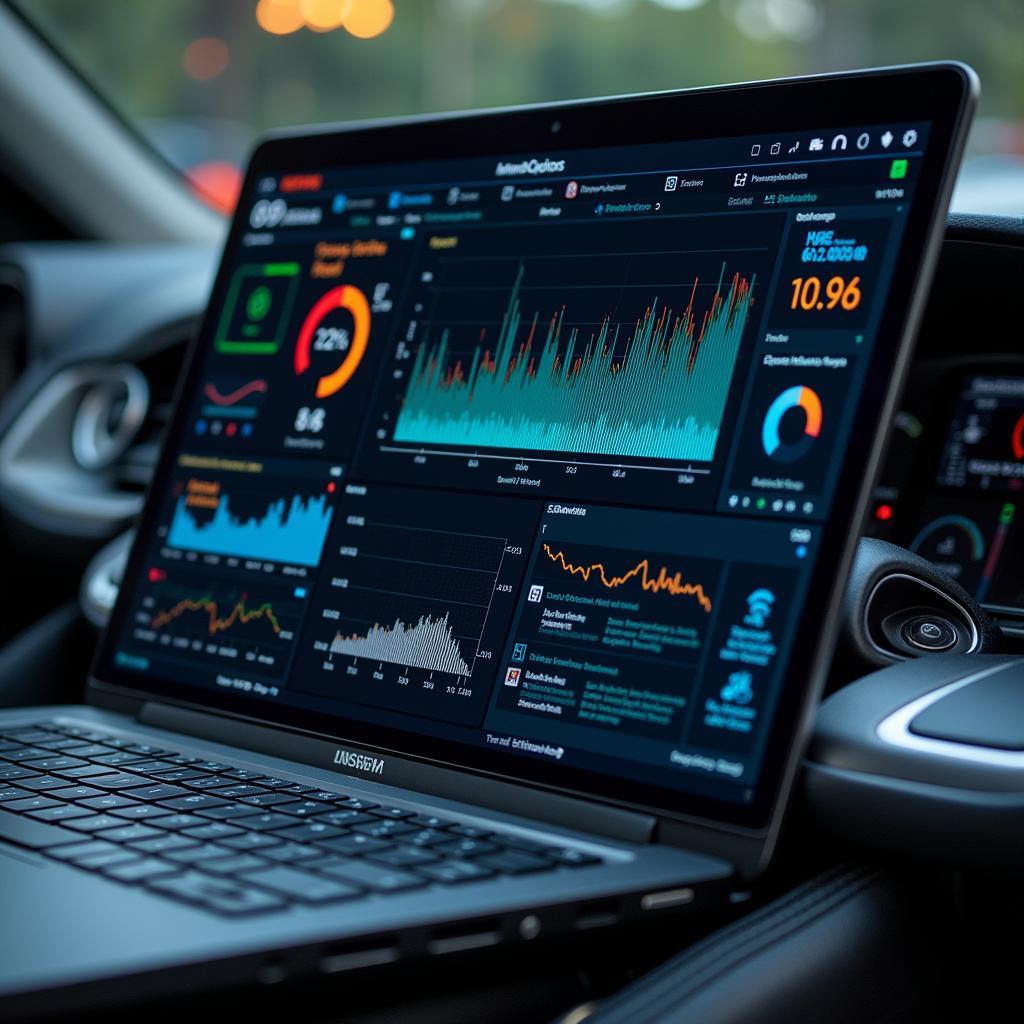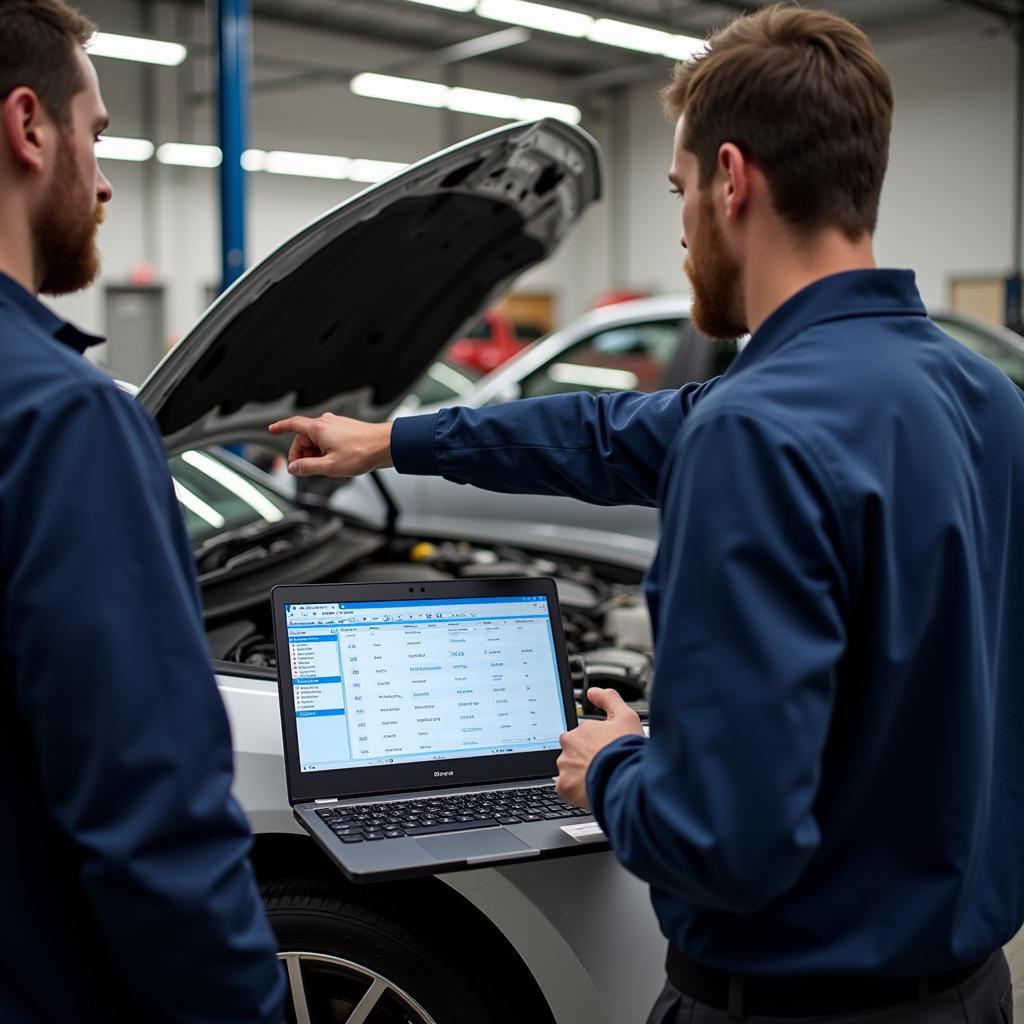The intricate network of electronics and mechanical components in modern vehicles can feel like a mystery, especially when something goes wrong. That’s where Diagnostics In Car maintenance come into play. This essential process, utilizing advanced scanning tools, allows mechanics to delve into your car’s computer system, uncovering hidden issues and ensuring optimal performance.
 Car Diagnostics Tools
Car Diagnostics Tools
Deciphering the Language of Your Car
Think of car diagnostics as a conversation with your vehicle. Just like a doctor uses various tests to understand your health, mechanics rely on diagnostic tools to communicate with your car’s computer, the Engine Control Unit (ECU). The ECU continuously monitors various systems, from engine performance and emissions to airbag deployment and anti-lock brakes. When a problem arises, the ECU stores a Diagnostic Trouble Code (DTC) – a specific code that acts as a clue for mechanics.
The Power of Car Diagnostic Tests
Gone are the days of relying solely on intuition and experience to diagnose car problems. Car diagnostic tests provide a data-driven approach, offering a range of benefits:
- Accurate Identification: Pinpoint the root cause of issues, eliminating guesswork and unnecessary repairs.
- Early Detection: Identify potential problems before they escalate into major (and costly) breakdowns.
- Improved Performance: Ensure all systems are functioning optimally, improving fuel efficiency and overall performance.
- Enhanced Safety: Detect issues related to critical safety systems like airbags and brakes, ensuring a safer driving experience.
 Car Diagnostic Software Interface
Car Diagnostic Software Interface
What to Expect During a Car Diagnostic Test
A car diagnostic test typically involves the following steps:
- Connecting the Diagnostic Tool: A mechanic will connect a specialized scanning tool to your car’s OBD-II port, usually located under the dashboard.
- Retrieving DTCs: The tool will communicate with the ECU, retrieving any stored trouble codes.
- Analyzing the Codes: The mechanic will use their expertise and reference materials to interpret the codes and understand the underlying issues.
- Further Investigation: Depending on the codes, the mechanic may conduct additional tests or inspections to confirm the diagnosis and develop a repair plan.
- Repair and Reset: Once the problem is fixed, the mechanic will clear the codes and ensure the systems are functioning correctly.
You can find reliable car diagnostic services in various locations. For instance, if you’re looking for “car diagnostics in Houghton Road St Helens” or need a “diagnostics test car near me,” numerous reputable garages and service centers offer these specialized services.
Beyond the Basics: Advanced Diagnostics
While retrieving and interpreting DTCs forms the foundation of car diagnostics, advanced techniques offer even deeper insights:
- Live Data Analysis: Monitor real-time data from various sensors, allowing mechanics to observe system behavior under different driving conditions.
- Actuator Tests: Command specific components, like fuel injectors or solenoids, to activate, verifying their functionality.
- ECU Programming and Coding: Update or modify the ECU’s software, addressing performance issues or adapting the vehicle to specific modifications.
These advanced diagnostic capabilities require specialized equipment and expertise, often found at dealerships or specialized repair shops.
 Mechanic Explaining Diagnostics to Customer
Mechanic Explaining Diagnostics to Customer
Car Diagnostics: Empowering Car Owners
Understanding the basics of diagnostics in car maintenance can empower you as a car owner. While professional diagnostics are essential for accurate diagnosis and repair, you can perform basic checks using affordable OBD-II scanners available in the market. These tools can provide valuable information about your car’s health, helping you stay informed and make informed decisions about maintenance and repairs. Whether you’re experiencing a specific issue or want to stay ahead of potential problems, car diagnostics play a crucial role in keeping your vehicle running smoothly and safely for years to come.
Remember, if you’re unsure about any aspect of car diagnostics, don’t hesitate to consult a qualified mechanic. They can provide expert advice, perform accurate diagnostics, and ensure your car receives the best possible care.
FAQs about Car Diagnostics
1. How often should I get my car’s diagnostics checked?
It’s generally recommended to have your car’s diagnostics checked annually as part of routine maintenance. However, if you notice any unusual warning lights, strange noises, or performance issues, it’s best to get it checked sooner.
2. Can I diagnose car problems myself?
While affordable OBD-II scanners can provide basic information about your car’s health, they shouldn’t replace professional diagnostics. Complex issues often require specialized equipment and expertise to diagnose accurately.
3. What if the check engine light is on, but my car seems to be running fine?
Even if your car seems fine, a check engine light indicates a potential issue that shouldn’t be ignored. It’s crucial to get your car diagnosed to identify and address the underlying problem before it worsens.
4. Can car diagnostics detect problems with the battery?
Yes, car diagnostic tools can often detect issues related to the battery, charging system, and starter motor.
5. Are car diagnostic services expensive?
The cost of car diagnostic services can vary depending on the complexity of the issue and the location. However, many garages offer competitive rates, and some may even include a free diagnostic check with other services.
6. I’m looking for “car diagnostics in Haven Lane Oldham” or “car diagnostics Liverpool.” Where can I find reputable services?
You can easily find reputable garages and service centers offering car diagnostics in specific areas by searching online directories, checking customer reviews, or asking for recommendations from friends or family.
7. I’m interested in learning more about “car mechanics electronic diagnostics.” Are there any resources available?
Yes, numerous online resources, forums, and courses offer in-depth information about car mechanics and electronic diagnostics. You can also find helpful guides and videos on websites like YouTube or specialized automotive platforms.
Need Assistance with Car Diagnostics?
For expert support and guidance on car diagnostics, feel free to reach out to us via WhatsApp: +1(641)206-8880 or Email: [email protected]. Our team of experienced technicians is available 24/7 to assist you with any car diagnostic needs. We also have articles about specific car diagnostic issues, such as “car diagnostics Haven Lane Oldham” and “car mechanics electronic diagnostics” on our website.

Leave a Reply